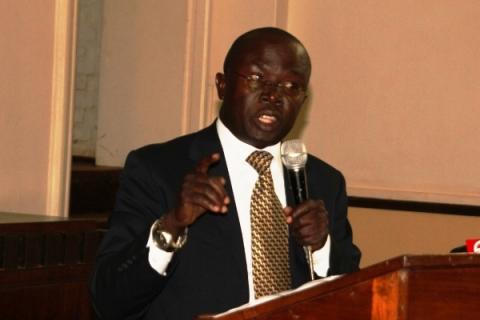Makerere Lecturers Toughen On Incentives
Submitted by Christopher Tusiime on

Makerere University Academic Staff Association (Muasa) yesterday gave the university council an ultimatum of one month to have fully cleared their incentive arrears amounting to Shs 15 billion.
While holding their general assembly at the College of Education and External Studies (Cees), they also resolved that their incentives should not be reduced by 75 per cent as the university council had proposed in a letter they received earlier this month.
A number of lecturers opposed the one month period saying that it's too long. They wanted a maximum period of two weeks.
Shortly after the meeting, the chairman of Muasa, Dr Muhammad Kiggundu, said: "Muasa are ready to resume full services to their students but on condition that between now and October 21, 2016, all negotiations to restore incentives to a level acceptable to academic staff should have ended and all reports promised submitted and discussed."
One lecturer from college of humanities and social sciences, who demanded to speak to us on condition of anonymity said if the university council doesn't implement their recommendations and before the agreed deadline, they will not be allowing any deductions from their incentives.
“If they don’t meet deadline, we shall demand that our incentives keep at 100 per cent as it has been instead of [reducing] 70 percent,” the source said.
In the a meeting held on September 5, Muasa decided to stop teaching evening and weekend students after their incentives were delayed for six months on top of slashing them to 25 per cent.
As all this was taking place, the Makerere University vice chancellor, Prof John Ddumba-Ssentamu, maintained that the reason why the staff had gone 6 months without receiving their incentives is because students don't pay fees.
"Currently the university has no money. We are waiting for government to help us. We can't have money and refuse to pay. Even the number of students on evening program has reduced," Prof Ddumba-Ssentamu said, but couldn't tell how many students are studying on evening program.
Ddumba-Ssentamu's other argument is that lecturers should have been more patient because they have even just received a salary enhancement, implying that they are already being motivated very well.
These incentives are paid by the university and act as allowances which enhance the salary payments given to evening lecturers.
- 358 reads
